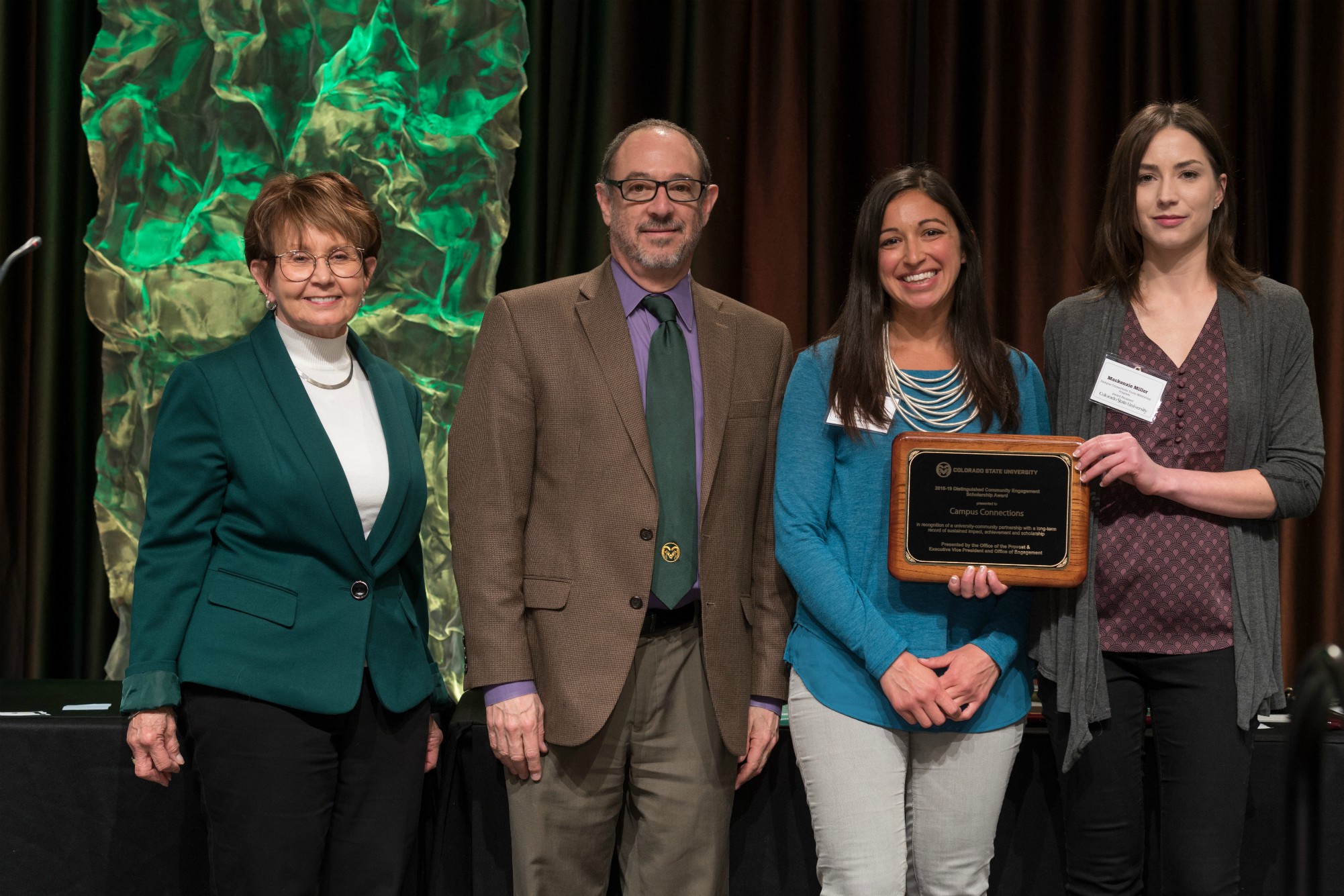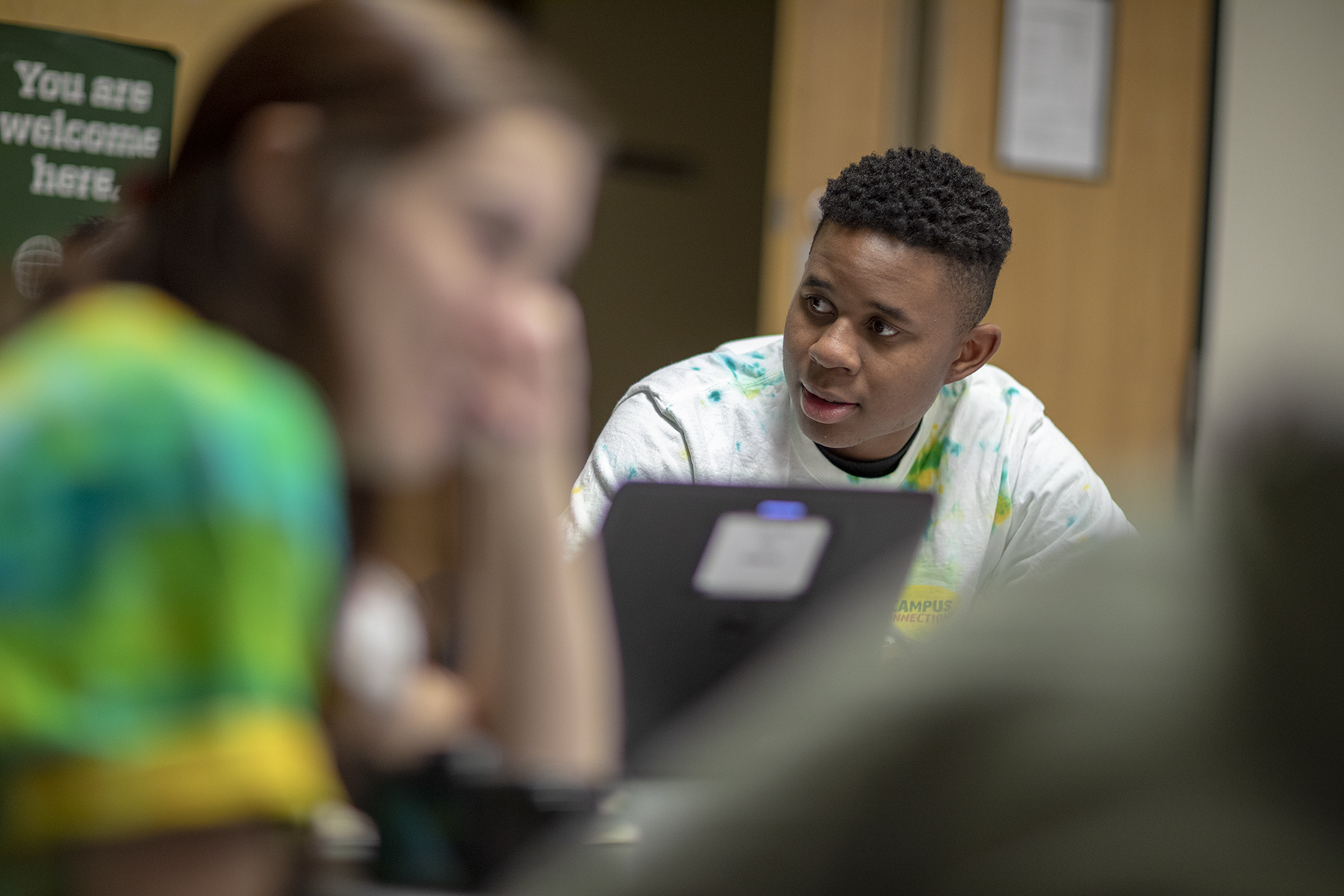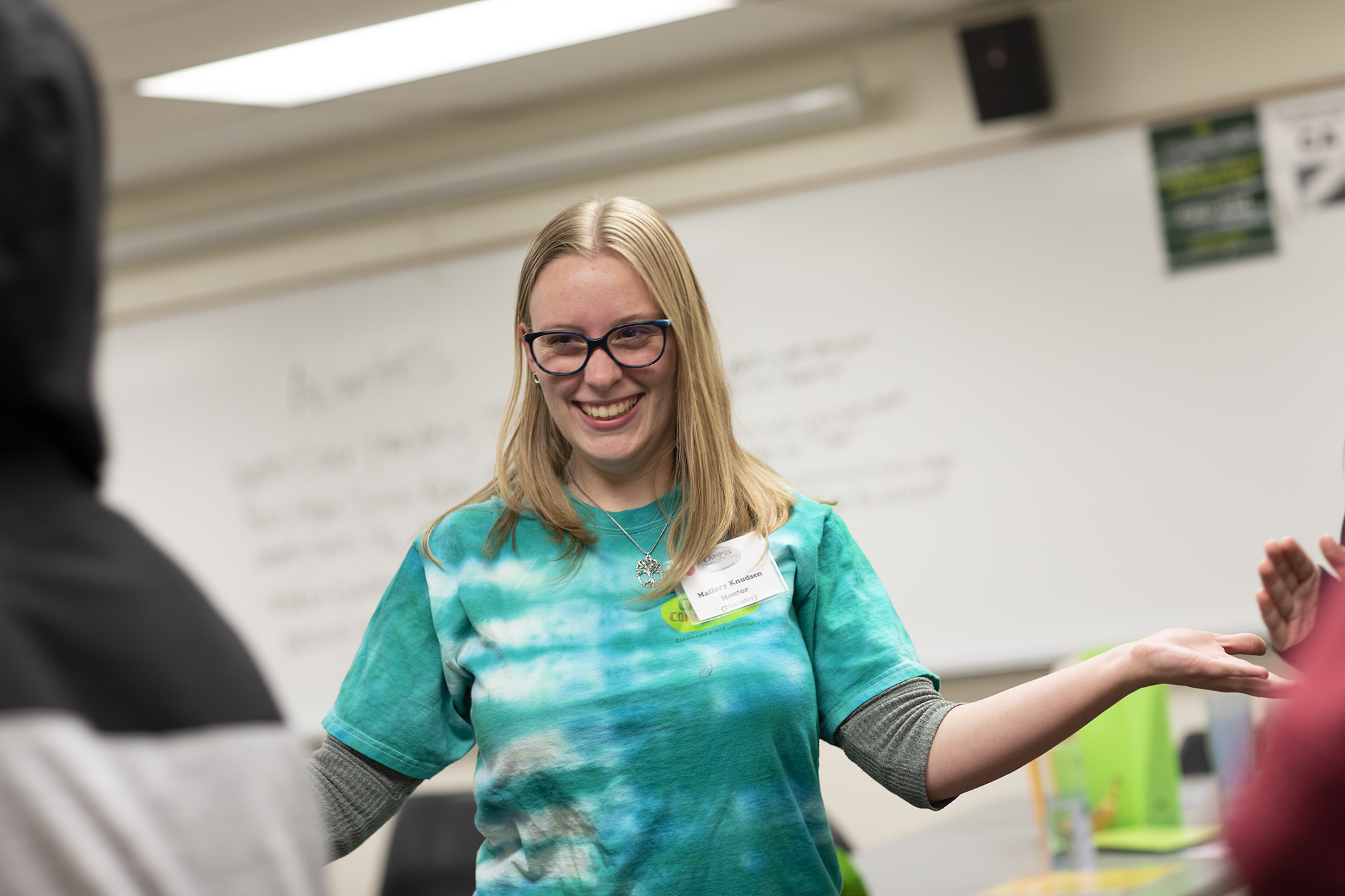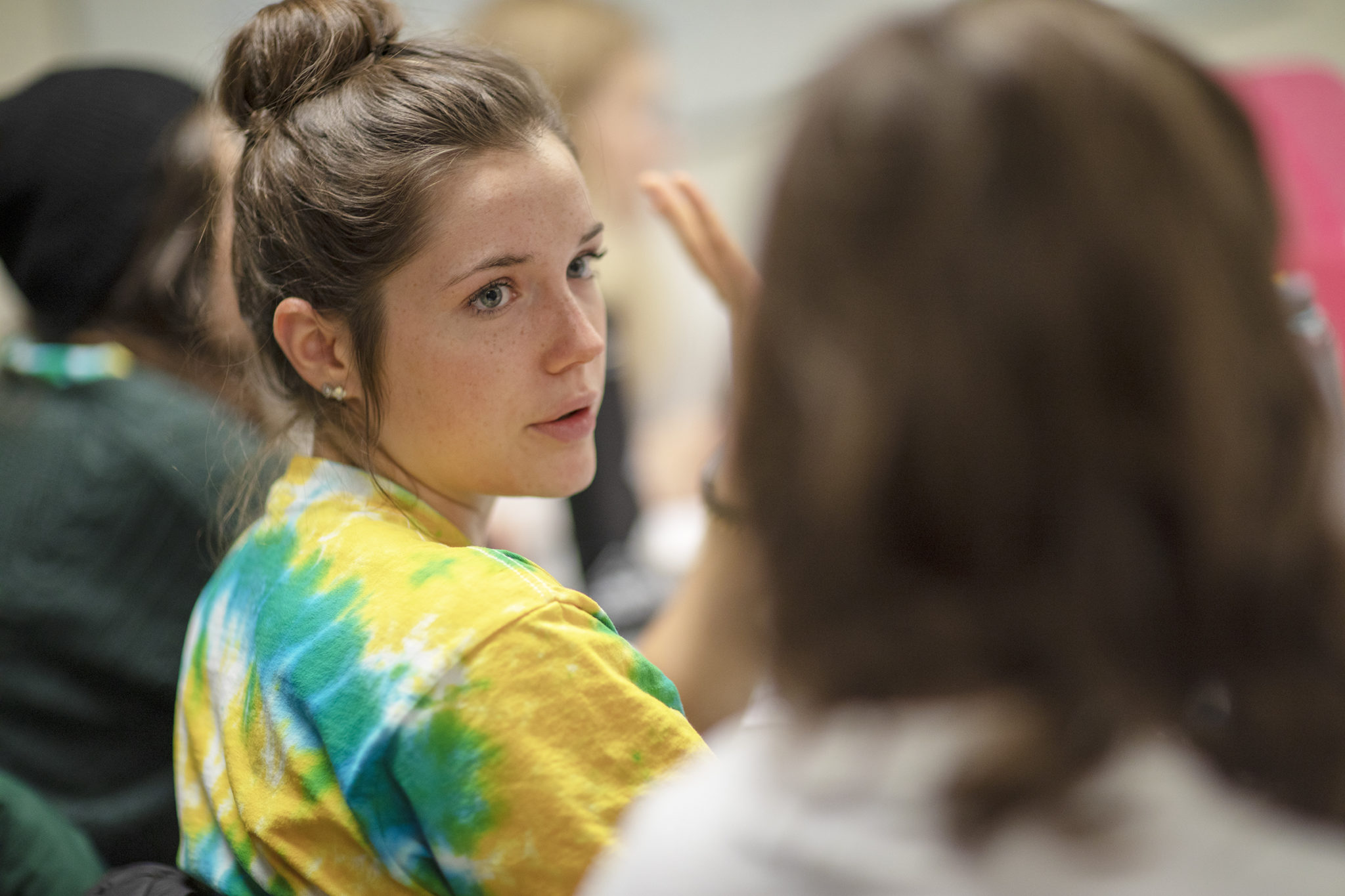
As a land-grant institution and Carnegie Community Engaged University, engagement is one of the University’s most important core values. The Campus Connections youth mentoring program in the Department of Human Development and Family Studies embodies this value with their commitment to improving lives of youth in the community. The program was recently recognized with the CSU Distinguished Community Engagement Scholarship Award, jointly presented by CSU’s Office of the Provost and Executive Vice President and Office of Engagement.
The award is conferred annually in recognition of exemplary engaged scholarship by CSU faculty or academic staff members and their community partners.
The Carnegie Foundation describes community engagement as “the collaboration between institutions of higher education and their larger communities for the mutually beneficial exchange of knowledge and resources in a context of partnership and reciprocity.”
Where it all started
Campus Connections launched ten years ago in response to a community need to aid vulnerable, local youth who were struggling in school or already in the juvenile justice system. This population of vulnerable youth in Larimer County struggled with truancy, substance use, delinquency, and mental health issues and was growing rapidly.
 Due to the 2008 economic recession, intervention services for these young people hadn’t been prioritized, and there was a distinct lack of services available for this critical population.
Due to the 2008 economic recession, intervention services for these young people hadn’t been prioritized, and there was a distinct lack of services available for this critical population.
In 2009, during the search for creative solutions to this growing problem, Shelley Haddock, an associate professor in CSU’s Department of Human Development and Family Studies; Jen Krafchick, associate professor in HDFS; and Toni Zimmerman, professor and program director of the Marriage and Family Therapy Graduate Program, collaboratively came up with the idea for Campus Connections.
“We used our expertise in family therapy, trauma-informed care, mentoring and prevention to design a program based on the best practices from the research,” said Krafchick. “It was very important to us that the program was evidence-based.”
The program pairs CSU undergraduate students with 10-18 year olds who are referred from the local juvenile justice system, schools, human services and other providers.
“CC supports a community need, engages various agencies in partnership with assets at the University, and provides a program that both serves youth in need, and also provides a high-impact learning experience for CSU students,” wrote the nominators, a group made up of community members who have been involved in the program in various ways.
The Campus Connections program is unique because it provides participants with on-campus, after-school programming that includes mentoring, mental health therapy services, trauma-informed care, family support, assistance with homework or GED preparation, access to prosocial activities and dinner, and social justice awareness activities. The goal is to influence youth behavior and choices in a positive way through mentoring and support
Involving community partners
An important aspect of the program’s success is its community partners.
“We worked closely with our community partners to ensure that the program had the components that would best address the needs of the youth while also providing an impactful learning experience for our students,” said Krafchick.

Each semester, several key professionals, including current and former judges and magistrates from juvenile court, the chief deputy district attorney for juvenile cases, juvenile probation officers and school professionals work to train CSU undergraduate mentors to successfully support youth referred to Campus Connections.
Campus Connections’ leaders spend significant amounts of time serving on relevant community boards including United Way, Colorado Youth Detention Continuum and the Connect First Credit Count Action Group.
Campus Connections also partners with the Larimer County Food Bank. Campus Connections and the Food Bank share the financial responsibility for providing healthy meals for both mentors and mentees taking part in the program. This allows mentees to receive a free, nutritious meal when attending the program and tackles the issue of food insecurity within this part of the community.
Professionals in Loveland’s Thompson School District and the Loveland Probation Department wanted youth to also benefit from Campus Connections, but transportation from Loveland was a significant barrier. Campus Connections’ leaders have worked diligently to transport approximately 25 youth each week by bus to and from the program– a task that requires a substantial partnership involving funding, staff and volunteer time, and coordination.
Seeing results
Over the last 10 years, the program has involved over 2,300 youth and close to 3,000 CSU students.

Program evaluation efforts have found that Campus Connections improves youth’s attitudes about and use of substances, decreases their acceptance of and frequency of problem behaviors, and improves their school attendance and emotional well-being. Youth participants also have reported improvements in their relationships with friends and family, their self-esteem and attitudes towards education.
Campus Connections also benefits student mentors. Participation in Campus Connections is associated with a 127% higher chance of graduating and 63% lower odds of dropping out in any given year, higher GPAs and faster graduation rates.
Other results indicated that Campus Connection’s improves mentors’ civic attitudes and action, community service self-efficacy, self-esteem, interpersonal and problem solving skills, political awareness, and civic action.
In the past seven years, Campus Connections has won seven awards, the most recent being the Innovation and Economic Prosperity Universities Award in the “Talent” category from the Associations of Public Land-Grant Universities, and the Excellence in Community Partner Engagement Award from the Engagement Scholarship Consortium, both in 2018.
Campus Connections epitomizes the mutual benefits that can be achieved through truly collaborative, reciprocal and effective university-community partnerships. Both community partners and program faculty are thankful to have received the CSU Distinguished Community Engagement Scholarship Award and are looking to increase the program’s reach and recognition in the future.
Campus Connections is part of the Department of Human Development and Family Studies in CSU’s College of Health and Human Sciences.